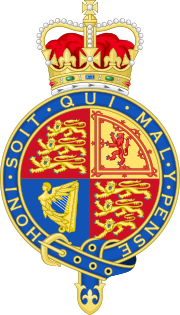Dishonesty is to act without honesty. It is used to describe a lack of probity, cheating, lying, or deliberately withholding information, or being deliberately deceptive or a lack in integrity, knavishness, perfidiosity, corruption or treacherousness. Dishonesty is the fundamental component of a majority of offences relating to the acquisition, conversion and disposal of property defined in criminal law such as fraud.

Hedley Byrne & Co Ltd v Heller & Partners Ltd [1964] AC 465 is an English tort law case on economic loss in English tort law resulting from a negligent misstatement. Prior to the decision, the notion that a party may owe another a duty of care for statements made in reliance had been rejected, with the only remedy for such losses being in contract law. The House of Lords overruled the previous position, in recognising liability for pure economic loss not arising from a contractual relationship, applying to commercial negligence the principle of "assumption of responsibility".

Tracing is a legal process, not a remedy, by which a claimant demonstrates what has happened to his/her property, identifies its proceeds and those persons who have handled or received them, and asks the court to award a proprietary remedy in respect of the property, or an asset substituted for the original property or its proceeds. Tracing allows transmission of legal claims from the original assets to either the proceeds of sale of the assets or new substituted assets.
R v Hinks [2000] UKHL 53 is an English case heard by the House of Lords on appeal from the Court of Appeal of England and Wales. The case concerned the interpretation of the word "appropriates" in the Theft Act 1968. The relevant statute is as follows:

Barclays Bank Ltd v Quistclose Investments Ltd[1968] UKHL 4 is a leading property, unjust enrichment and trusts case, which invented a new species of proprietary interest in English law. A "Quistclose trust" arises when an asset is given to somebody for a specific purpose and if, for whatever reason, the purpose for the transfer fails, the transferor may take back the asset.

English trust law concerns the protection of assets, usually when they are held by one party for another's benefit. Trusts were a creation of the English law of property and obligations, and share a subsequent history with countries across the Commonwealth and the United States. Trusts developed when claimants in property disputes were dissatisfied with the common law courts and petitioned the King for a just and equitable result. On the King's behalf, the Lord Chancellor developed a parallel justice system in the Court of Chancery, commonly referred as equity. Historically, trusts have mostly been used where people have left money in a will, or created family settlements, charities, or some types of business venture. After the Judicature Act 1873, England's courts of equity and common law were merged, and equitable principles took precedence. Today, trusts play an important role in financial investment, especially in unit trusts and in pension trusts. Although people are generally free to set the terms of trusts in any way they like, there is a growing body of legislation to protect beneficiaries or regulate the trust relationship, including the Trustee Act 1925, Trustee Investments Act 1961, Recognition of Trusts Act 1987, Financial Services and Markets Act 2000, Trustee Act 2000, Pensions Act 1995, Pensions Act 2004 and Charities Act 2011.

R v Ghosh [1982] EWCA Crim 2 is an English criminal law case setting out a test for dishonest conduct which was relevant as to many offences worded as doing an act dishonestly, such as deception, as theft, as mainstream types of fraud, and as benefits fraud. The test has been revised to an objective test, with rare exceptions, by the Supreme Court in Ivey v Genting Casinos [2017] UKSC 67.
The English law of unjust enrichment is part of the English law of obligations, along with the law of contract, tort, and trusts. The law of unjust enrichment deals with circumstances in which one person is required to make restitution of a benefit acquired at the expense of another in circumstances which are unjust.
Dishonest assistance, or knowing assistance, is a type of third party liability under English trust law. It is usually seen as one of two liabilities established in Barnes v Addy, the other one being knowing receipt. To be liable for dishonest assistance, there must be a breach of trust or fiduciary duty by someone other than the defendant, the defendant must have helped that person in the breach, and the defendant must have a dishonest state of mind. The liability itself is well established, but the mental element of dishonesty is subject to considerable controversy which sprang from the House of Lords case Twinsectra Ltd v Yardley.

Twinsectra Ltd v Yardley[2002] UKHL 12 is a leading case in English trusts law. It provides authoritative rulings in the areas of Quistclose trusts and dishonest assistance.
A Quistclose trust is a trust created where a creditor has lent money to a debtor for a particular purpose. If the debtor uses the money for any other purpose, then it is held on trust for the creditor. Any inappropriately spent money can then be traced, and returned to the creditors. The name and trust comes from the House of Lords decision in Barclays Bank Ltd v Quistclose Investments Ltd (1970), although the underlying principles can be traced back further.

Foskett v McKeown[2000] UKHL 29 is a leading case on the English law of trusts, concerning tracing and the availability of proprietary relief following a breach of trust.

Bishopsgate Investment Management Ltd v Homan [1994] EWCA Civ 33 is an English trusts law case about whether a beneficiary whose fiduciary breaches trust, may trace assets through an overdrawn account to its destination.
Vaughan v Barlow Clowes International Ltd [1991] EWCA Civ 11 is an English trusts law case, concerning tracing.

Barnes v Addy (1874) LR 9 Ch App 244 was a decision of the Court of Appeal in Chancery. It established that, in English trusts law, third parties could be liable for a breach of trust in two circumstances, referred to as the two 'limbs' of Barnes v Addy: knowing receipt and knowing assistance.

Baden v Société Générale pour Favoriser le Developpement du Commerce et de l'Industrie en France [1983] BCLC 325 is an English trusts law case, concerning breach of trust and knowing receipt of trust property. It was most famous for giving rise to the "Baden scale" or the "Baden knowledge scale" following on from the judgment of Peter Gibson J as to the five different types of relevant knowledge in knowing assistance cases. The use of the Baden scale has since fallen out of judicial favour in the United Kingdom.
Brinks Ltd v Abu-Saleh [1996] CLC 133 is an English trusts law case, concerning breach of trust and liability for dishonest assistance. It established an apparently high threshold for liability for dishonest assistance.

Royal Brunei Airlines Sdn Bhd v Tan[1995] UKPC 4 is an English trusts law case, concerning breach of trust and liability for dishonest assistance.
Belmont Finance Corp Ltd v Williams Furniture Ltd [1980] 1 All ER 393 is an English trusts law case, concerning breach of trust and dishonest assistance.
Barlow Clowes International Ltd was a British company, whose fraud and collapse caused an accounting scandal in 1988.









